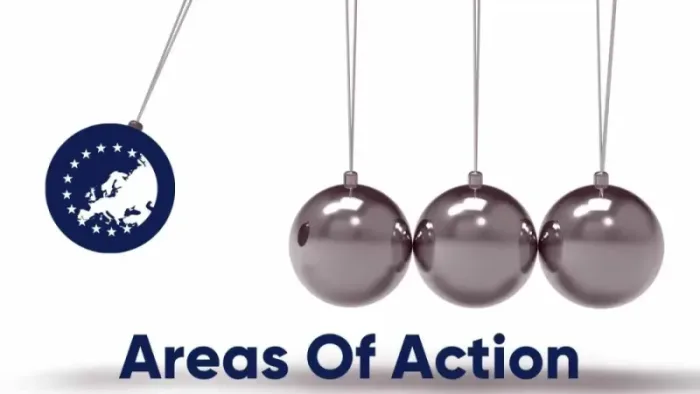
The AER develops its areas of action consistently with members’ priorities, EU policies and relevant trends in regional affairs in wider Europe. The AER Areas of Action are updated regularly and subject to changes.
#AER4EUelections: Building Trust in Democracy
Hope in the future, political dialogue and community-building are the key drivers of the AER actions ahead of the EU elections 2024. As a network of regional and local communities, the AER seizes the elections as an opportunity to amplify regions’ voices on the topics of place-based green transition, sustainable societal development, the future of Cohesion Policy, youth empowerment and EU enlargement and neighbourhood.
Read and download the AER Manifesto for the European Elections 2024.
Place-based climate adaptation and innovation
The twin green and digital transitions have the potential to uplift Europe. To make sure that their implementation does not uproot livelihoods, it is vital that regional communities and decision makers have a say in how to bring them forward. Through a synergy of activities from European projects, Task Forces and Working groups, the AER works towards implementing place-based climate adaptation and innovation.
MEET Project: Mobilise Europe, Engaging Together
The MEET project serves the purpose of making citizens’ voices heard, while connecting people interested in engaging with the topic of European democracy.
After the debates hosted by AER members Azores, Krapina-Zagorje and Lower Austria in autumn 2023, spring 2024 sets the scene for debates exploring the different elements of European democracy and society ahead of the EU elections in June 2024. The spring debates will bring together the Assembly’s EU advocacy expertise, the European projects’ capacity of mobilising citizens, and the energy of the AER Youth Regional Network.
When and where?
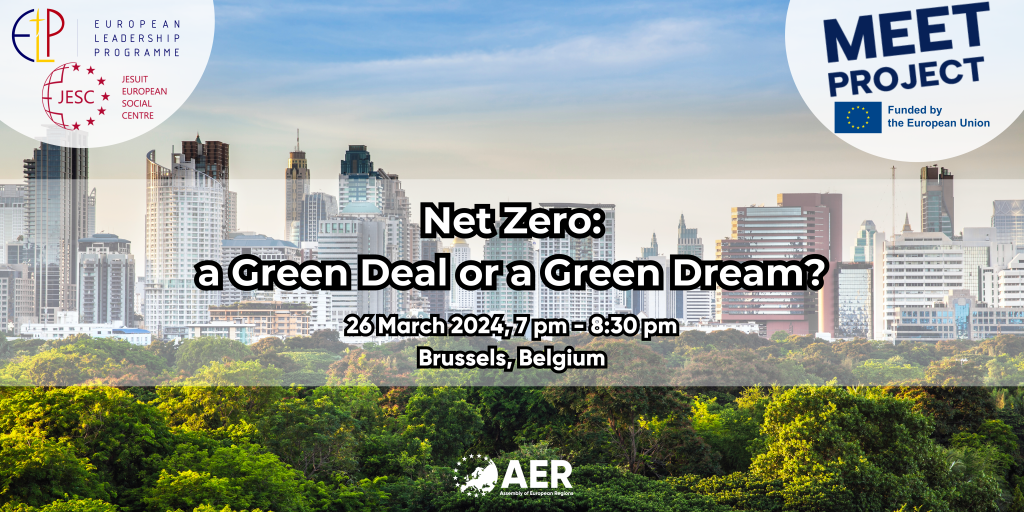
On 26 March 2024, the AER and the European Leadership Programme will co-host a debate on the interaction between ecology and economics with Gaël Giraud, economist, Director of Research at the CNRS (Centre National de la Recherche Scientifique), professor at the French École nationale des Ponts et Chaussées and author.
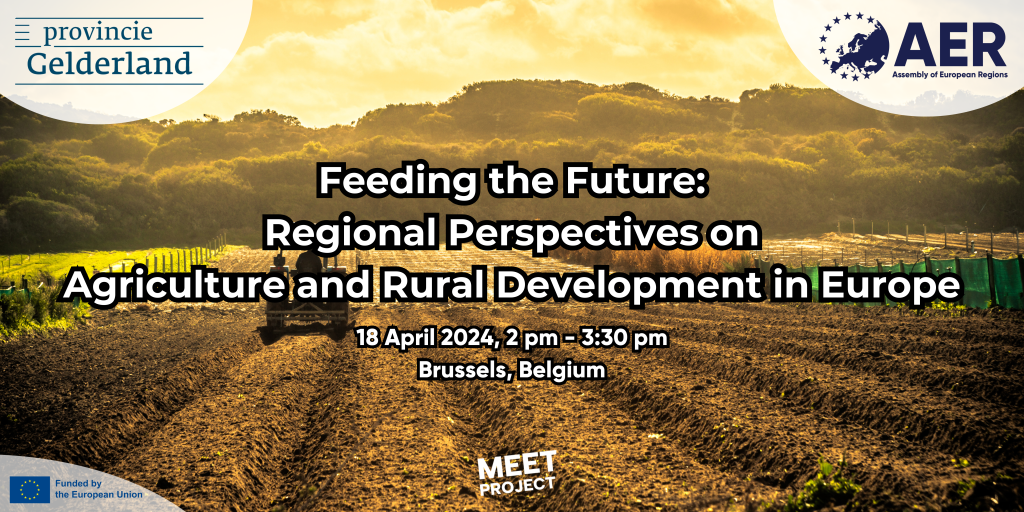
On 18 April 2024, the Dutch province of Gelderland and the AER will host a debate on the challenges and opportunities awaiting rural communities and farmers.
Task Forces on Rural Development & Agriculture and Decarbonisation
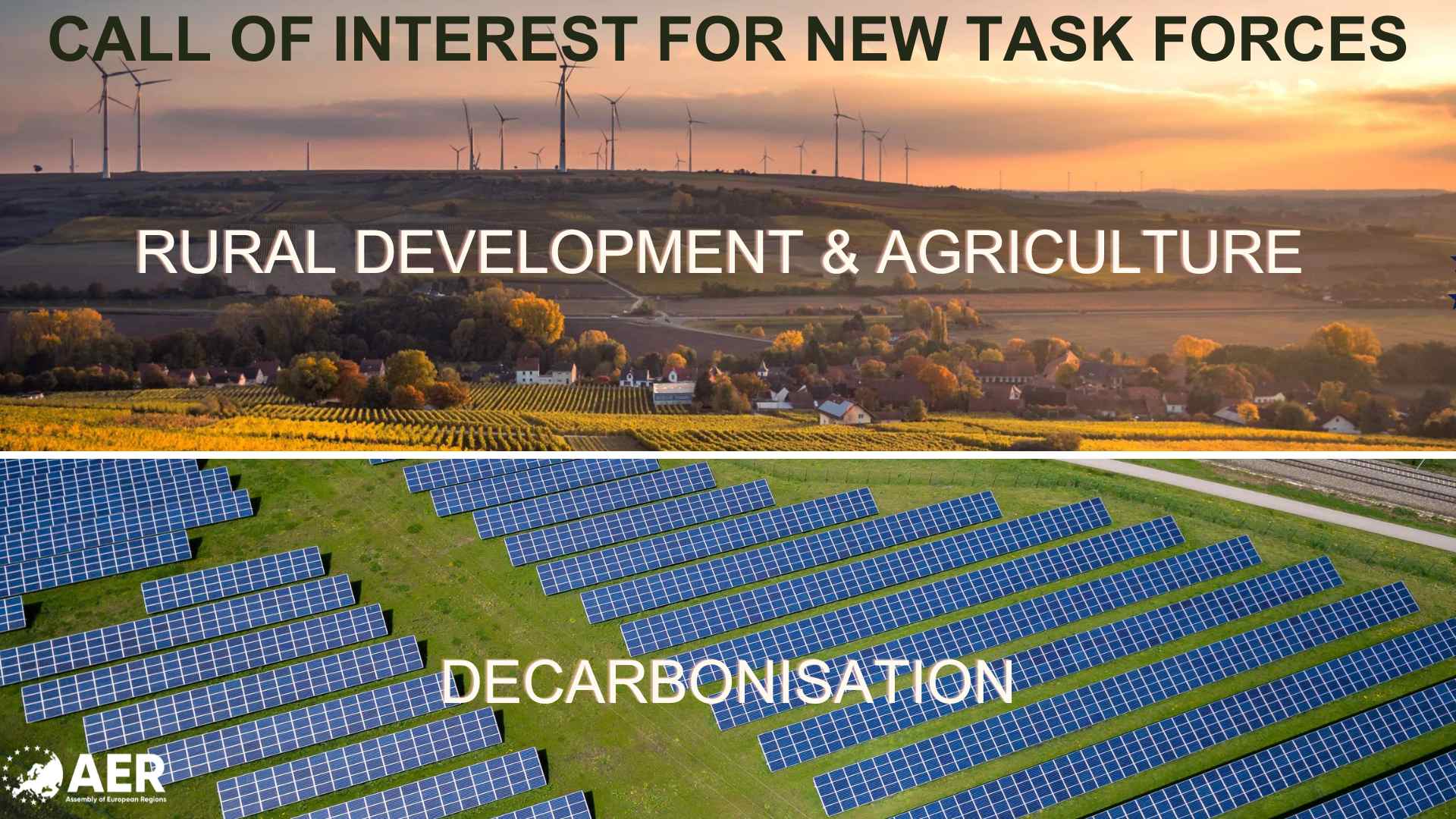
Task Force on Rural Development and Agriculture
Established by the AER Bureau in December 2023, the Task Force on Rural Development and Agriculture aims to define a common vision for a new era in farming and rural policy in Europe to play a leading role in shaping European agricultural and rural development policies post-2027. The Task Force will aim to foster a resilient, sustainable and inclusive future for Europe’s rural areas and a vibrant agricultural sector that aligns with the goals of environmental sustainability, economic viability and technological advancement.
Click here to join the Task Force on Rural Development & Agriculture
Task Force on Decarbonisation
The Task Force aims to delve into the EU’s strategic approach to decarbonisation, its key policies, initiatives and future legislation on mitigating the impacts of climate change and securing access to critical raw materials indispensable for the green transition.
Its key objectives encompass showcasing the central role of local and regional authorities in promoting renewable energy sources to reduce fossil fuel dependence. Additionally, the Task Force will focus on collaborating with regional industries to transition toward cleaner production processes and therefore, lowering carbon emissions in crucial sectors.
Finally, the Task Force aims to create a community of practice at the local and regional level to ensure alignment of local policies and regulations with EU climate objectives and to promote decarbonisation efforts which need to be supported by increased financing mechanisms and grants at the regional level.
Click here to join the Task Force on Decarbonisation
Working Group on Bioeconomy

Established in the Spring 2022, the Working Group on Bioeconomy & Skills enables interested regions to discuss opportunities and strategies in the area of the bioeconomy. Three main areas sparked the interest of participants:
- bio-based construction materials and techniques
- new food systems
- waste management
In the context of the bioeconomy, where the industry, the value chain, the collaborations between stakeholders are new, there are major challenges in terms of skills: both to develop the right skills and to attract & retain skills in places where the industry is located.
The supporting regions are Värmland (SE), Gelderland (NL), Fribourg (CH), Donegal (IE), Údaras na Gaeltachta (IE), Adana (TR), Eastern Slovenia (SI), Lower Austria (AT), West Slovenia (SI), Dolj (RO), Tirana (AL), Umbria (IT), Valencia (ES).
Past activities included a study visit to the Agrana plant, a sugar refinery and major Bioeconomy stakeholder, facilitation of match-making activities on region-led project proposals and organisation of tailored workshops on innovation in bio-based materials.
It is possible to join anytime, by filling this form
Working Group on Green Hydrogen
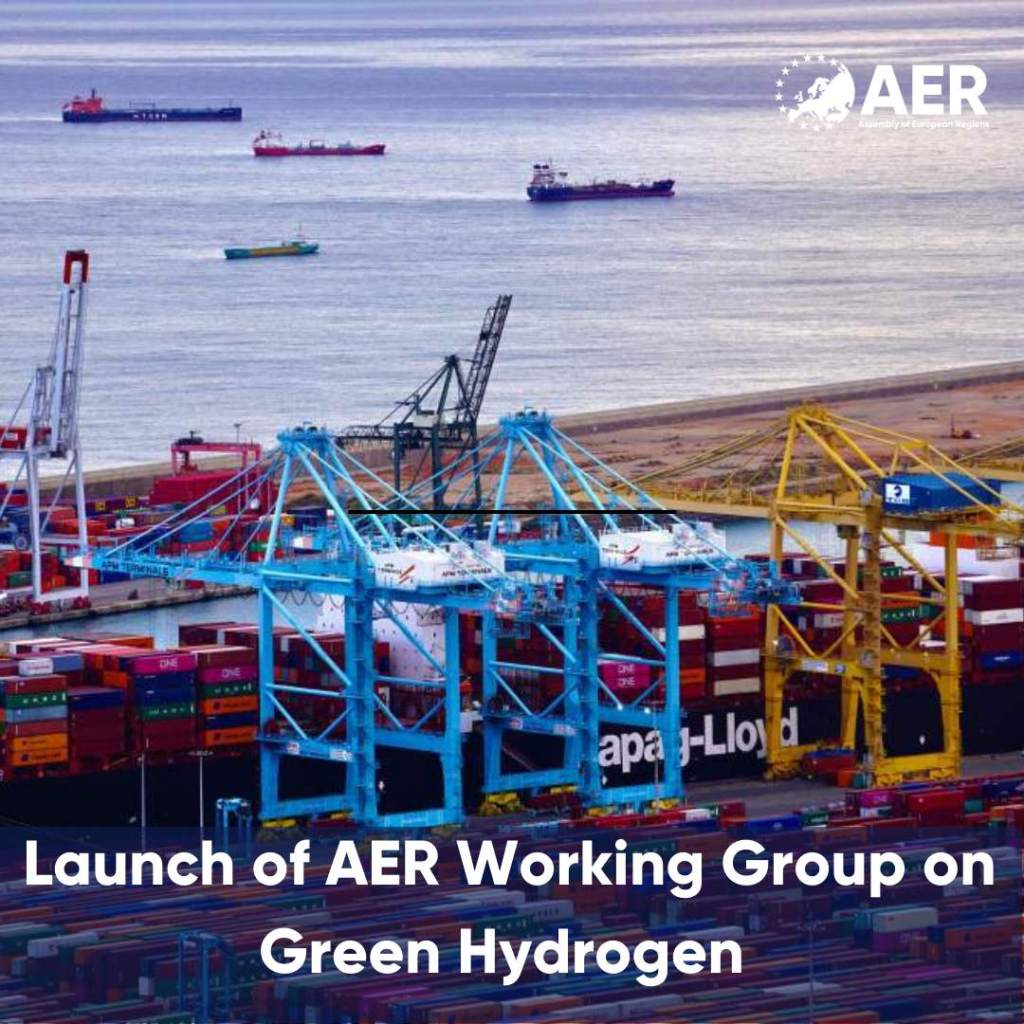
Started in March 2023, the AER Working Group on Green Hydrogen is chaired by AER President Albert Castellanos, Secretary for Business and Competitiveness of the Government of Catalonia. The Working Group identified the following areas of interest:
- The hydrogen value chain: in particular how to involve businesses
- Decarbonisation of transports: transport carriers, trucks and buses
- Decarbonisation of the industry
- Green hydrogen production
- Support to or development of Hydrogen Valleys
Among many past activities, the Working Group organised a study trip to the Port of Barcelona in the context of AER Summer Symposium in Barcelona.
It is possible to join anytime by filling this form
Sustainable societies
Fostering sustainable societies requires a holistic approach encompassing consistent care for individuals, communities and the relationships between and within them. Through the development of synergies between Working Groups, European projects and advocacy efforts, the AER members work actively for improving the sustainability of societies.
EU-Belong project
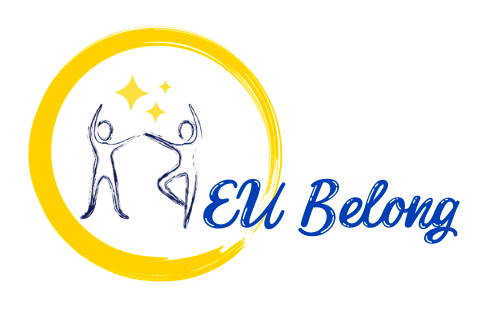
Generated by the work of the AER Intercultural Regional Network from 2022 onwards, the EU-Belong project aims to improve migrants’ socio-economic inclusion and sense of belonging through a strong intercultural approach based on equality, diversity as advantage, and positive interaction. In 2024, the focus will be on dissemination of the results achieved by the 10 regional partners: Arad (RO), Catalonia (ES), Donegal (IE), Emilia-Romagna and Istituto Cooperazione Economica Internazionale (IT), Leipzig-Aufbauwerk (DE), Navarra (ES), Pomerania (PL), Salzburg (AT) and Timis (RO).
Working Group on Mental Health
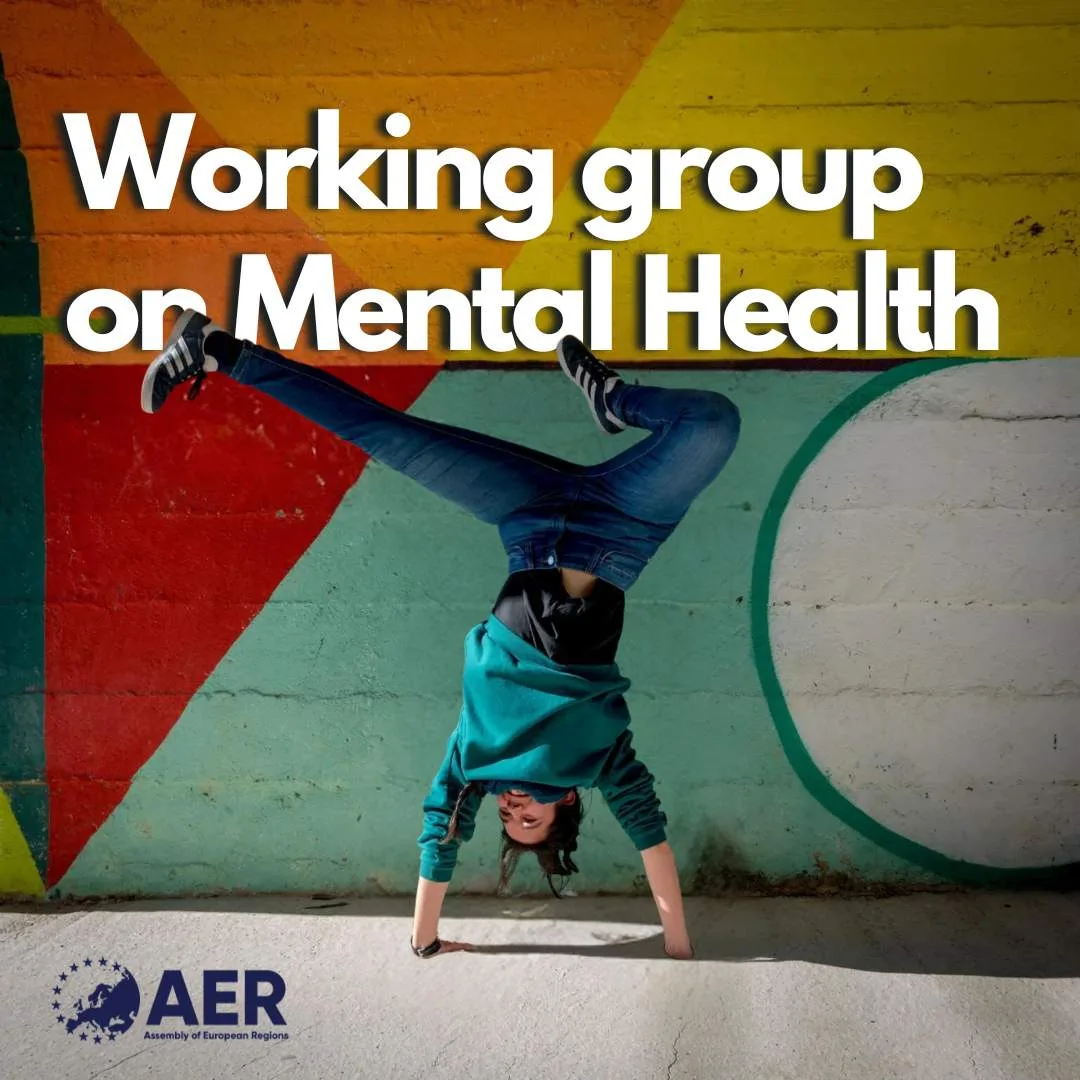
Initiated in October 2023, the Working Group on Mental Health is based on the shared awareness of the increase in the need for mental health support and care, in particular for young people.
The Working Group is chaired by Daniel Schützer, Värmland (SE) and it is supported by the regions of Norrbotten (SE), Arad (RO), Kharkiv (UA), Odessa (UA), Vojvodina (RS), Donegal (IE), Brussels Capital Region (BE), Alba Iulia (RO), Region Västra Götaland (SE), Region Jönköpings län (SE), Canton of Zurich (CH). Its activities benefit from the collaboration with the YRN members of Tirana (AL), Salaj (RO), Nordland (NO), Donegal (IE).
Past activities included a workshop exploring the reasons behind the increase for mental health support, possible forms of prevention and strategies to make mental health a cross-cutting priority across policies.
You can join the Working Group anytime clicking here
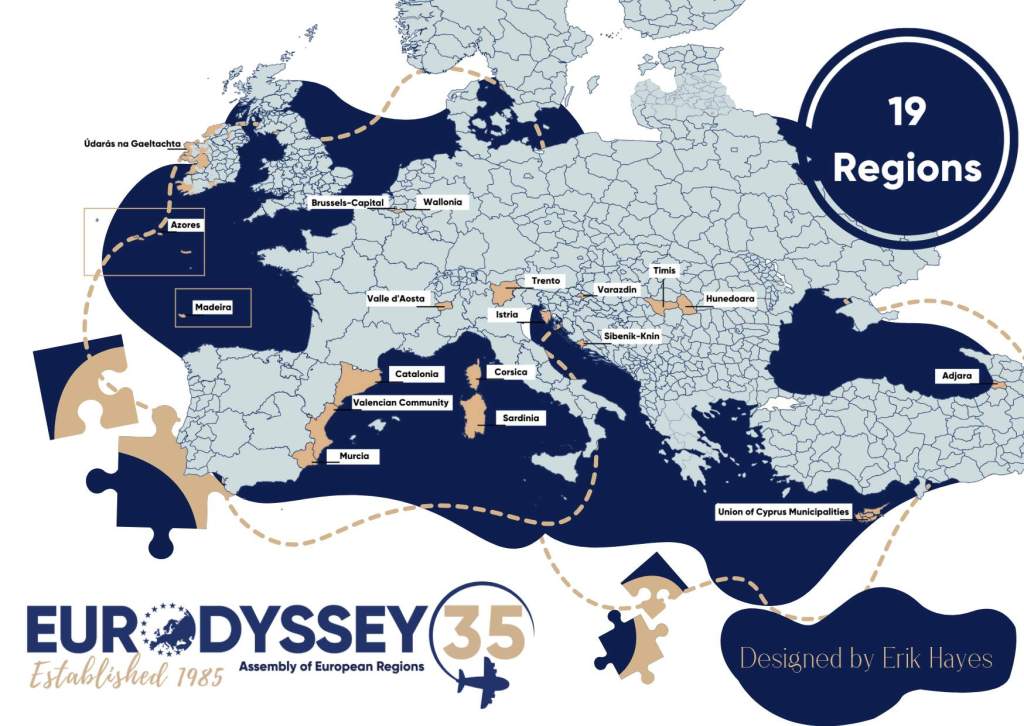
Youth empowerment
Eurodyssey
Established in 1985, Eurodyssey provides quality traineeships in businesses and organisations in 14 regions across wider Europe. As the coordinating authority of the programme, the AER strives to make Eurodyssey a training opportunity for young people keen on advancing their professional and personal development. Read more here.
Youth Regional Network (YRN)
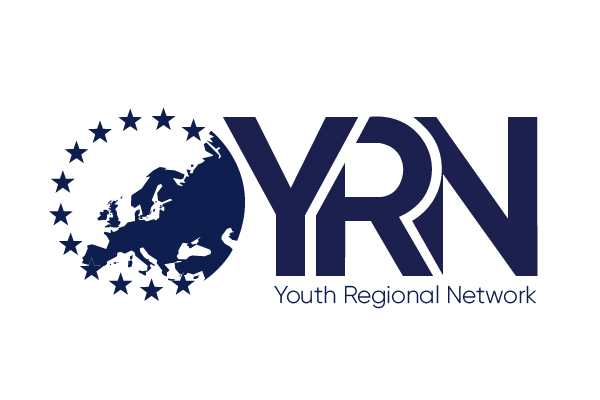
Revived in March 2023, the YRN is a cross-regional network that provides young people with opportunities to express policy recommendations, to foster debate and capacity-building, to exchange good practices, to reach out to decision-makers and to influence policies. Read more here
Summer Academy

A bi-annual forum on youth and culture, the Summer Academy gathers representatives from the AER membership and its wider network. In 2024, the Summer Academy will take place in Bodø, one of the European Capitals of Culture, and it will focus on culture as tool to favour youth participation.
The Summer Academy will be one of the study visits shaping the activities of Climbing the Ladder, an Erasmus+ project which aims to ddress the need for effective and meaningful structures, mechanisms and spaces for youth.


The Future of Cohesion Policy
The AER is a member of the Cohesion Alliance, which brings together European associations of cities and regions and the European Committee of the Regions. Its primary mission is to champion a robust EU Cohesion Policy, emphasising its role as a cornerstone of the European Union’s future. Within this framework, the Task Force on Cohesion Policy will strongly advocate for the continued enhancement of economic, social and territorial cohesion in the years ahead, underlining that cohesion policy is applicable to all regions.
Moreover, the Task Force will call for ongoing efforts to streamline and harmonise regulations across EU programs while advocating for thorough evaluations of existing EU policy instruments before the introduction of new ones. This approach aims to prevent overlaps and ensure optimal policy implementation by reducing the administrative burden.
In addition, it will emphasise the need to prioritise sustainable development for both the EU and its regions in the upcoming programming period. Additionally, the Task Force will address the unique challenges of various regions dealing with diverse demographic challenges, development traps and the uneven consequences of the green and digital transition.
The Future of Europe
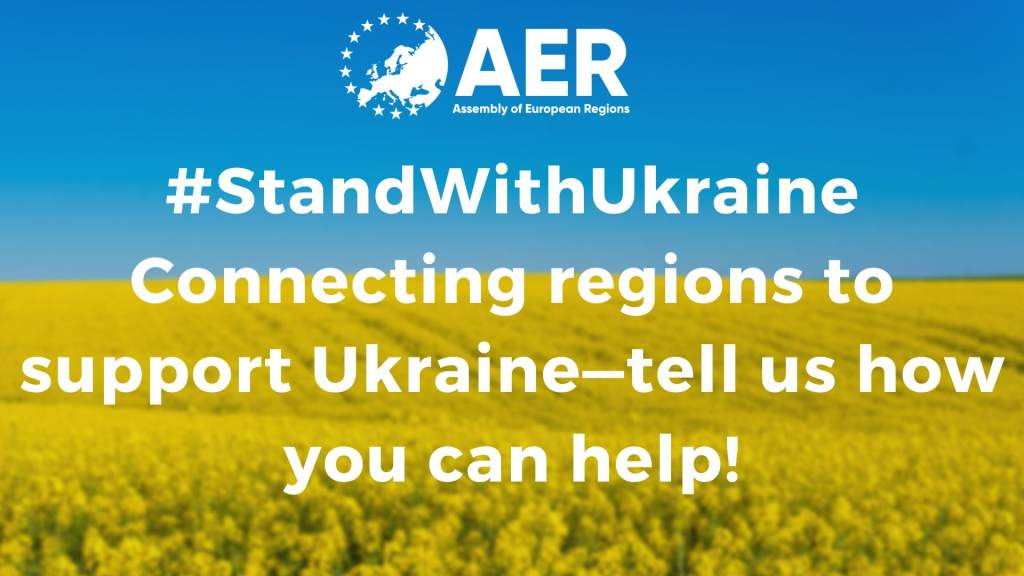
EU and Ukrainian members work together to establish connections between businesses and communities through the ongoing work of the Focus Group. Driven by the goal of deepening cooperation between regional actors, it organised meetings on practical needs of regional businesses and institutions in Cluj-Napoca (RO), Barcelona (ES), and Vienna. Read more here
